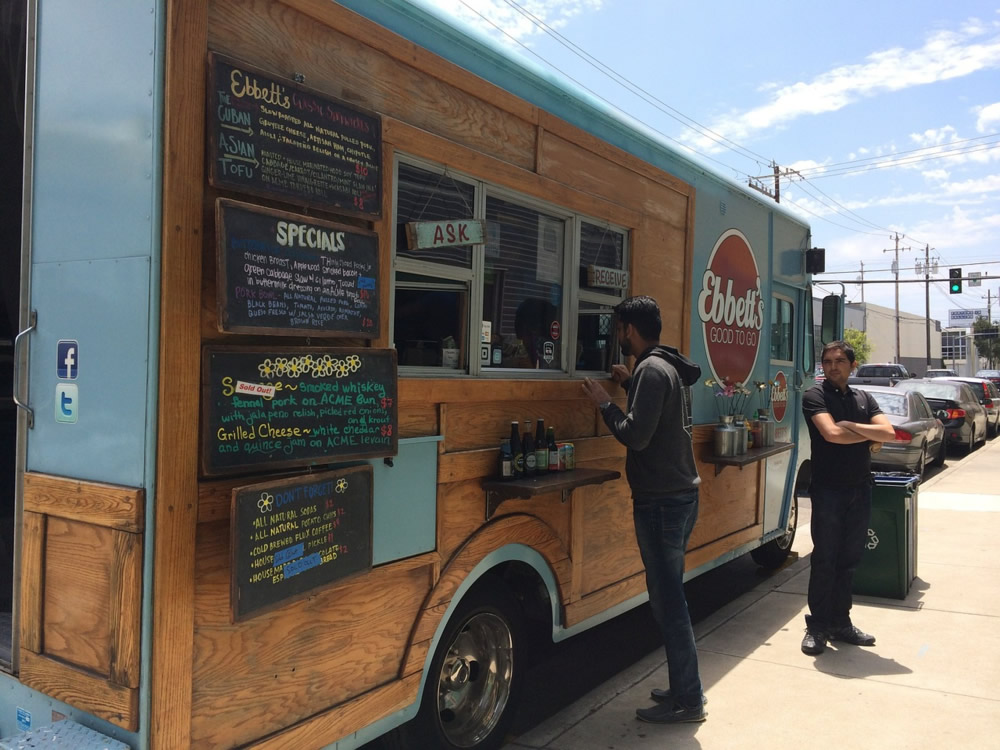By Elliott Brack, editor and publisher | Sometimes communities get hung up over relatively trivial activities.
 Take what is happening in North Kansas City, Mo. This suburb, surrounded by the larger Midwest area, has a 2013 population of 4,319, smaller than most of the cities of Gwinnett. It’s relatively small, only 4.63 square miles, and two miles from downtown Kansas City. There’s a casino in town, and the biggest employers is Cerner, a major health care giant founded in North Kansas City.
Take what is happening in North Kansas City, Mo. This suburb, surrounded by the larger Midwest area, has a 2013 population of 4,319, smaller than most of the cities of Gwinnett. It’s relatively small, only 4.63 square miles, and two miles from downtown Kansas City. There’s a casino in town, and the biggest employers is Cerner, a major health care giant founded in North Kansas City.
The issue that has people in North Kansas City talking is food trucks.
Some enjoy the variety of food that the food trucks offer.
Others don’t care for them, citing these trucks for taking away dollars from established restaurants in the town.
One way of putting it might be: “tradition vs. trend” or “free market vs. fair play.”
All across the nation, a debate is going on in built-up areas, as operators of food trucks look for population centers that they think offer them better opportunity to seek such areas. Many food trucks offer non-traditional fare, with distinctive tastes.
Meanwhile, operators of established food restaurants, some of them on shaky financial ground, see these trucks parked on city streets as nothing but strong and unfair competition, and have to battle them for the customer’s food dollar.
Many food trucks once (and many still do) serve customers in far-flung work sites, showing up at break times, or even for lunch, and do a brisk trade. They cater to construction sites, in particular, making it easy for that site’s workers to get a snack or even a meal, and not wander far from the site for a break or lunch, while snacking relatively quickly. Employers on such sites welcome them.
It gets to be another matter, however, when these trucks park in the middle of towns on the city streets, and compete with permanent businesses. Those favoring food trucks cite their distinctive taste in food, sometimes offering atypical fare compared to traditional restaurants. Detractors say that food trucks have lower costs in that they do not have to support an overhead of running a traditional restaurant, making a food truck parked outside unfair competition.
In recent months in Gwinnett, there seems to be a growing cadre of food trucks not just showing up for weekend fairs, but having a set time to visit many of the cities on the country on a regular basis. Some cities almost go overboard to welcome these trucks as an amenity for their citizens. The area’s restaurant owners do not agree.
Some people want to have a “dining experience” when they choose to dress up to go out to eat, and spend money by having someone else prepare the food, even up to white tablecloths, distinctive wines, and possibly some music in the background.
Others would just as soon “grab a bite” when ordering to a food truck window. They don’t mind either standing up to eat, or moving to a nearby park concrete picnic table for their leisure eating. They never even think of white tablecloths.
In Gwinnett, we suspect we’ll start hearing more, pro and con, of this relatively small but consequential issue of food trucks. After all, if it’s happening in middle America in North Kansas City, Mo., it’s probably a concern for just about all of our vast country.












Follow Us